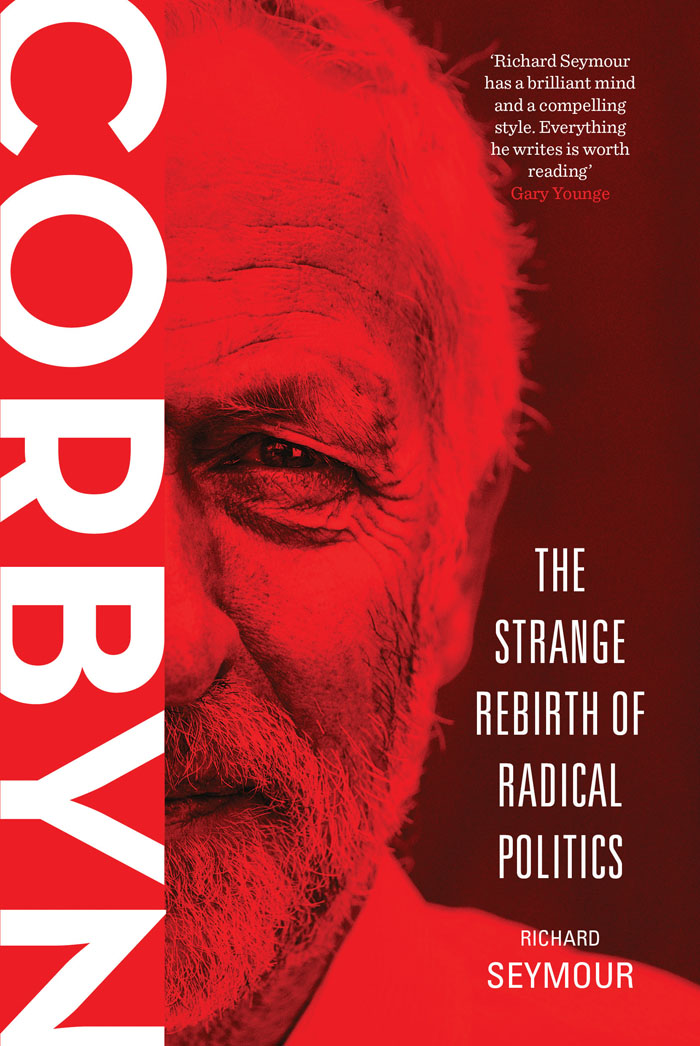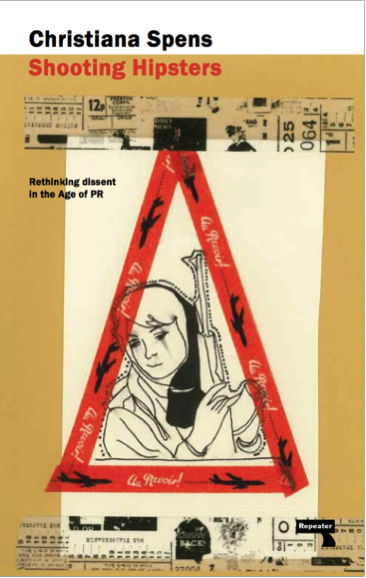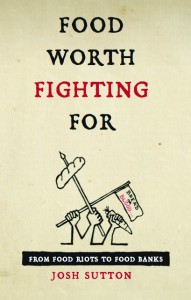
Don't Burn the Books
08.07.2016
A scorching hot list of summer political reading selected by Mark Perryman
A year ago as Labour sought to recover from the May General Election defeat halls were starting to fill up for Jeremy Corbyn’s leadership campaign rallies. But even as the halls got bigger and the queues round the block longer few would ever imagined that this would result in the Left for once being on the winning side. The overwhelming majority of Labour MPs never accepted the vote, they bided their time and chose the moment for their coup and in a fashion to cause maximum damage.
 Richard Seymour’s Corbyn : The Strange Rebirth of Radical Politics is to date both the best, and the definitive, account of what Corbyn’s victory the first time round meant. One year on the essential summer 2016 read.
Richard Seymour’s Corbyn : The Strange Rebirth of Radical Politics is to date both the best, and the definitive, account of what Corbyn’s victory the first time round meant. One year on the essential summer 2016 read.
But as Jeremy Corbyn would be the first to admit his victory will never amount to much unless he can refashion what Labour also means. A Better Politics by Danny Dorling is a neat combination of catchy ideas and practical policies towards a more equal society that benefits all. Of course the principle barrier to equality remains class. In her new book Respectable Lynsey Hanley provides an explanation of modern class relations that effortlessly mixes the personal and the political. If this sounds easier written than done then George Monbiot’s epic How Did We Get Into This Mess? serves to remind us of the scale of the economic and environmental crisis we are up against.Labour’s existential crisis is rooted in competing models of party democracy and how this should shape a party as a social movement for change. An exploration of what a left populist mass party might look like and the problems it will encounter is provided in Podemos: In the Name of the People a highly original set of conversations between theorist Chantal Mouffe and Íñigo Errejón political secretary of Podemos, introduced by Owen Jones, what a line-up!
One of the saving graces of Labour’s crisis should be pluralism. To reject those who indulge in the simplistic binary oppositions of Corbynista vs Blairite. To begin with all engaged in the Labour debate should read the free-to-download book Labour’s Identity Crisis : England and the Politics of Patriotism edited by Tristram Hunt. There is much here on an issue vital post #Brexit yet scarcely acknowledged as important by most on both ‘sides’ One criticism though, why no contributors from the Left side, Billy Bragg, Gary Younge, the young black Labour MP Kate Osamor for example? Taking a tour round Britain to portray the state of the nation(s) is fairly familiar territory for writers on Britishness but Island Story by JD Taylor still manages to stand out thanks to a the author’s sense purpose, tenacity of the imagination, and a bicycle. Underneath the surface of any tendency towards a settled national narrative lies a bastardised version of English nationalism combining the isolationist and the racist to produce a toxic mix. As a shortish polemic The Ministry of Nostalgia from Owen Hatherley is more of a demolition than a deconstruction of the rewriting of our history that lies behind this, and all the better for it.
Anglo-populism is mired in the issue of immigration as a mask for its racism.Angry White People by Hsiao-Hung Pai encounters the extremities of this, the Far Right whose politics of hate have a nasty habit of not being as far away as many of us would like.In the USA the brutal institutionalised racism of its police force has sparked a mass movement which is reported with much insight by Keeanga-Yamahtta Taylor’s in her From #BlackLivesMatter to Black Liberation, an essential read if a similar popular anti-racism is going to emerge on this side of the Atlantic sometime soon. Of course #BlackLivesMatter didn’t emerge in a political vacuum, it connected movements that date back to the 1950s and 1960s, connections which are expertly made by one of the key Black political figures of both then and now Angela Davis in her new book Freedom is a Constant Struggle an absolutely inspiring read. Do the deepening fractures around race spell a new era of uprisings? Quite possibly though their political trajectory and outcomes remain uncertain. Joshua Clover comes down firmly on the side of the optimistic reading in his new book Riot.Strike.Riot while most wouldn’t be so sure. A handy companion volume would be Strike Art by Yates McKee which helpfully explains the protest culture created via the Occupy movement. Where the doubt remains is whether the such moments, direct action or insurrection, can generate a positive impact beyond their own milieu or locality.
 Shooting Hipsters is a much-needed up to date account of, and practical guide to, how acts of dissent can breakthrough into and beyond the mainstream media. And for the dark side? Mara Einstein’s Black Ops Advertising details the many ways in which corporate PR operations have sought to colonise social media.
Shooting Hipsters is a much-needed up to date account of, and practical guide to, how acts of dissent can breakthrough into and beyond the mainstream media. And for the dark side? Mara Einstein’s Black Ops Advertising details the many ways in which corporate PR operations have sought to colonise social media.
It is out of history that inspiration for how to carve out a better future from the present is most likely to come. A Full Life by Tom Keough and Paul Buhle uses a comic strip to illustrate the life, times and ideals of Irish rebel James Connolly. Alternatively enjoy the extraordinary range of writing from the Spanish Civil War compiled by Pete Ayrton in No Pasaran! These were moments in a period of global change. Owen Hatherley’s carefully crafted The Chaplin Machine provides an insight into the aesthetic of revolution that was abroad at the time in the immediate aftermath of the 1917 Russian Revolution on a scale never seen before, or since. It is a period that is recorded with considerable skill by the twice-yearly journal Twentieth Century Communism the latest edition providing the usual ingenuity of range including Trotsky’s bid to live in 1930s Britain. outline of the basis for a cosmopolitan anti-imperialism. Of course there are plenty who would seek to bury all of this. David Aaronovitch comes to the last rites with his brilliantly written if flawed Party Animals which takes aim with his personal biography at the end of one history. An entirely different perspective is provided by the hugely impressive Jodi Dean and her latest book Crowds and Party an impassioned account of modern protest movements as the enduring case for a mass party of social and political change. Sounds familiar, trite even? Not the way Jodi argues it, mixing an acute sense of history with a visionary future.But the here and now of a super soaraway summer perhaps demands more immediate resources of hope than the promise of a better tomorrow.
My starting point for a today to look forward usually revolves around finding a recipe for a decent supper. Plenty of these to be found in The Good Life Eatery Cookbook with a mix of good-for-you, or more importantly in this instance me, temptingly delicious-looking photography and a philosophy behind it all that reminds me of that good maxim ‘small is beautiful.’ Of course no summer should be complete without a visit to the beach, highly recommended reading for the sun-lounger searching for a dash of a thriller for a mental getaway is Chris Brookmyre’s latest Black Widow which as always with Brookmyre is dark, twisted and entertaining. And for the children? Pushkin Press do the hard work for parents, tracking down the best in European kids’ books, translating, repackaging and producing such gems as Tow-Truck Pluck from the Netherlands. The perfect holiday read for families needing to be cheered up post-Brexit.
 And my book of the quarter? Food is never far from most of our minds. Summertime picnics for the fortunate, worrying about what we eat and impact it has on our health for some, the spread of Food Banks testament to the failure of austerity politics. Few writers could appeal to both the modern obsession with food as well as to consciences concerned with those who don’t have enough of it to get by never mind baking off. But Josh Sutton does with his pioneering account Food Worth Fighting For. This is social history that packs a punch while written in a style and with a focus to transform readers into fighting foodies. Brilliant, and incredibly original.
And my book of the quarter? Food is never far from most of our minds. Summertime picnics for the fortunate, worrying about what we eat and impact it has on our health for some, the spread of Food Banks testament to the failure of austerity politics. Few writers could appeal to both the modern obsession with food as well as to consciences concerned with those who don’t have enough of it to get by never mind baking off. But Josh Sutton does with his pioneering account Food Worth Fighting For. This is social history that packs a punch while written in a style and with a focus to transform readers into fighting foodies. Brilliant, and incredibly original.
Note : No links in this review to Amazon, if you can avoid purchasing from off shore tax dodgers please do.
Mark Perryman is the co-founder of the self-styled ‘sporting outfitters of intellectual distinction’, aka Philosophy Football.